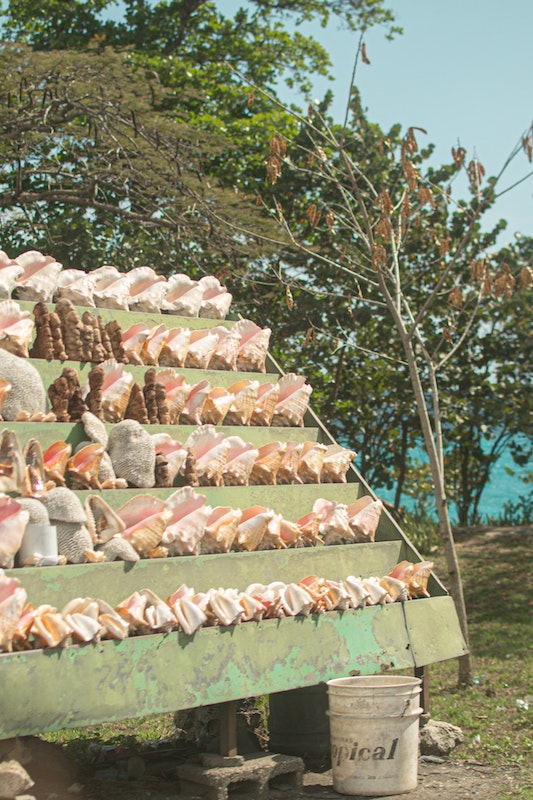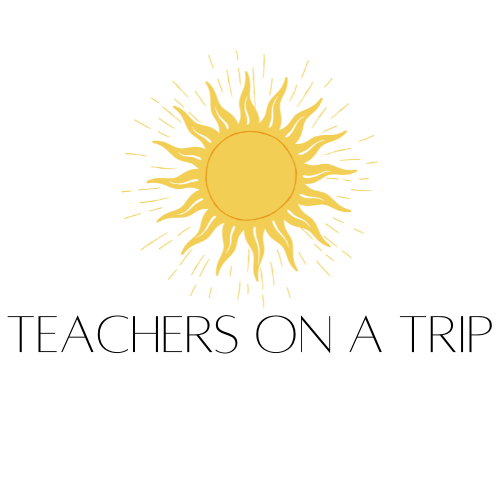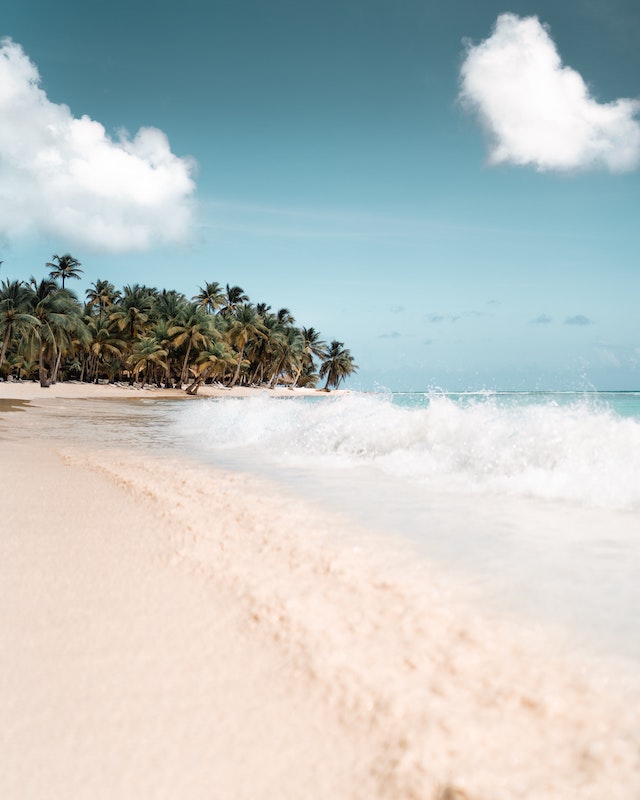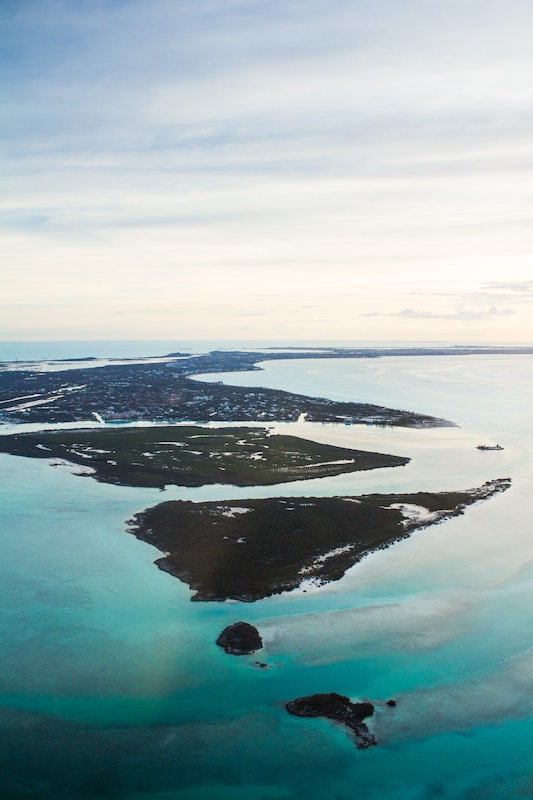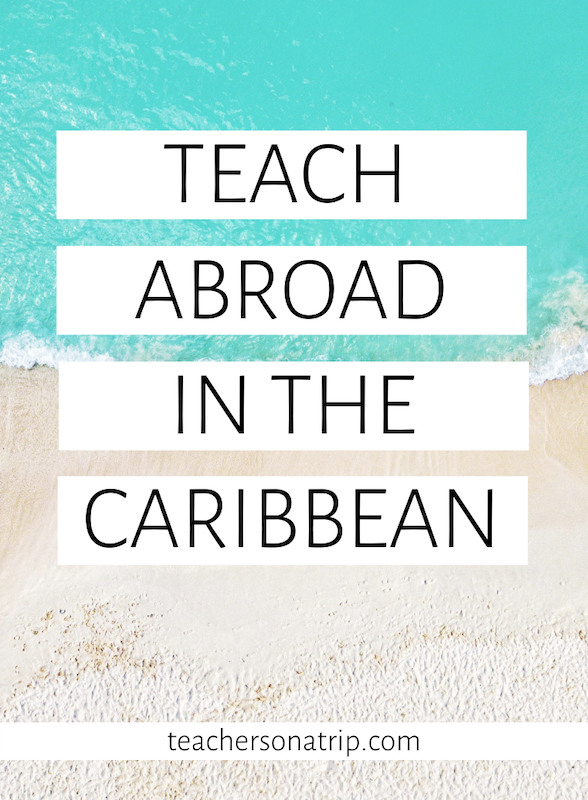
How to Teach Abroad in the Caribbean
We moved to the Caribbean to teach abroad 2 years ago and we are so thrilled with our decision. We chose to forego the money-making locations and put our happiness and quality of life first. The Caribbean is known for its turquoise waters, sandy beaches, and friendly people. The weather is always warm, and life is generally slow-paced. Although the Caribbean is not the place to go if you want to make obscene amounts of money, it has many other life benefits. I give a ton of insight of how to teach abroad in the Caribbean in my online e-course, The Beginner’s Guide to Teaching Abroad. But first, let’s go over some basics.
Who Can Teach in the Caribbean?
There are job opportunities for both certified and non-certified teachers. But there are some big differences between the styles of teaching. So which type is best for you?
Certified Teachers
Certified teachers have more job opportunities, better pay, and typically teach in better schools. This is because international schools have strict requirements and expectations. If you’re not certified, it is unlikely that you teach inside of an international school. The exception is if the school cannot get enough certified teachers to employ. They might look at hiring un-licensed teachers to keep their school running. I do not recommend applying to an international school if you are uncertified. But if you do, you should be prepared to work in a school that has difficulty maintaining quality teachers due to low salary, unsafe areas, bad management, or lack of classroom resources. Of course this is a generalization, and I cannot confirm that all the schools follow these guidelines. But this is definitely true for a majority of international schools. Curious how to start looking an applying for international schools? Check out The Beginner’s Guide to Teaching Abroad. I take you through the entire process, step-by-step, so you can start teaching overseas.
Uncertified Teachers
So how do uncertified teachers work in the Caribbean? You’ll need a different path. TEFL certifications are the best way to go. TEFL teachers have options of teaching inside and outside of schools. Some teachers get employed as an English teacher inside a school setting. This can look different for everyone. Some TEFL teachers conduct their own classroom teaching students English. Other teachers pull students out and give individual help. TEFL teachers can also teach outside of a school setting as tutors for both children and adults. Some TEFL teachers even work in small language schools which are a bit of a mix between the both. These jobs typically do not have the benefits that an international school has. But TEFL certifications are a much more affordable option than becoming a certified teacher.
If you Google “TEFL Companies”, you will be drowned with too much information. There are so many different TEFL courses out there, and you cannot trust them all. I recommend always finding one that is accredited and at least 120-hours. Anything less, and your potential employers may choose someone with more experience and training. Here is a list of my personal favorite TEFL certification courses. Some of these companies have both in-person and online TEFL Certification programs. So feel free to pick whichever works best for you and your needs!
-
International TEFL Academy
- International TEFL Academy is a well-respected, accredited organization that certifies around 6,000 students each year. All of their professors have their Masters or Doctorate degrees, so you know you’re getting a quality education. Although more expensive that the other options, this is the one to go with if you have the money. Employers will look at your resume and know you’ve been trained by one of the best!
-
ITTT (International TEFL and TESOL Training)
- ITTT is also an accredited and highly rated organization. Although not as big of a name as International TEFL Academy, it is still a great company and a much more affordable option! ITTT has a 60-hour course that you might be tempted to take. But I do not recommend doing anything less than the 120-hour course. You can click on the link above to save 5% off your enrollment fee.
-
Premier TEFL
- Premier TEFL is another great option for an accredited and highly rated organization. They also have many different course options which can help narrow your niche (if you have one) and gain more training in your field.
-
Maximo Nivel
- Can you guess what I’m going to say? Maximo Nivel is accredited and highly rated. I wouldn’t recommend anything that wasn’t. They are a smaller business that really cares about you! You get personalized attention, however, they primarily specialize in Central American countries. So if a Caribbean island is calling your name, Maximo Nivel might not be for you. However, if you decide that it is, mention that Teachers on a Trip recommended you in the notes section of your checkout and you’ll receive a free gift from us!
Salary and Savings in the Caribbean
The Caribbean is a vibrant location filled with island culture, music, and food. The Caribbean Sea is never far and everyday can feel like a vacation! But how expensive is it to live on an island? And do international schools pay a livable wage? It really depends. Most schools in the Caribbean provide enough of a salary for you to live comfortably. Although there is room to save some money, it won’t be as much as you could save in other locations. Teachers’ salaries can vary based on benefits that the school provides. If the school provides housing and utilities, then their salary tends to be lower. Whereas the schools that provide no financial assistance will have higher salaries.
Salary
- Highest salary: $82,000 USD
- Lowest salary: $20,948 USD
- Average salary: $42,943 USD
Benefits
To be honest, the Caribbean is not the best place to go if you’re looking to save a ton of money. We make enough to sustain ourselves and have a little extra to add to our savings accounts. But our savings here is not the same as what we would make if we chose to teach in Africa, Asia, or the Middle East. That’s because the international schools in the Caribbean don’t need to provide many benefits. Teachers will apply to fill their vacancies purely because of the location. Whereas schools in other continents might need to be more enticing to get teachers to fill their spots. All of the schools provide at least a one-way flight and cover a portion of your medical insurance. And some provide way more benefits and savings opportunities than others.
List of benefits offered by schools in the Caribbean:
- Housing- Although it’s not typical for Caribbean schools, some will provide furnished housing for teachers. A few others will provide a housing allotment. And of course, some will provide no assistance with housing.
- Utilities- If living in an apartment complex, you’ll never see a bill. If your school gives you an allowance each month for your rent, they’ll also add in enough to cover utilities.
- Flights- Some schools provide flights home and back each year. Some schools will even pay for your flights around the holidays as well!
- Moving allowances- Schools will give you different stipends to cover moving expenses. A “moving allowance” typically covers flights and any other expenses occurred while physically moving to a new country. A “settling-in stipend” is a one-time payment from the school that helps you cover things like deposits, opening a bank account, and furniture (if needed.) A “storage allowance” can be given to allow you to keep your belongings in a storage unit in your home country while you’re away. And finally, a “shipping allowance” allows you to ship any items or belongings to your new home. All of these are perks of teaching in an international school, and some schools will provide you some form of a moving allowance.
- General Fees- Some schools will cover the cost of your visa fees, vaccination fees, or other payments necessary to move to the Caribbean.
- Retirement- Different schools supply different amounts to your retirement fund. These can typically be cashed out when you leave the school and put into your account back home.
- Insurance- Schools will pay a good percentage of your medical, dental, and optical insurance.
- Bonuses- Some schools will offer a $2000+ bonus for each year you complete at your school.
- Personal Allowances- Some schools will give you a professional development allowance and even a R&R allowance in some schools.
The benefits of the school are always what you want to focus on. Even if you’re getting paid $30,000/year, you could still be adding $20,000 to your savings account each year if the school supplies good benefits.
Potential Savings
- Highest potential savings: $35,000 USD
- Lowest potential savings: $0 USD
- Average potential savings: $9,000 USD
Mathematically, the higher the salary and benefits combined, the higher your potential savings. But on occasion, there are schools that offer a competitive salary but no benefits. Meaning you need to take a look at the potential savings in each location to determine your finances in a region.
Famous Landmarks and Travel Destinations
One of the big perks for teachers to work abroad is to be able to travel. Luckily for us, island hopping is a much cheaper option than flying back to the US or to other areas of the world. Local Caribbean airlines will typically offer discounts to get to other nearby islands or Central American countries. So what kind of beautiful locations can you easily access during your time in the Caribbean?
- Arecibo Observatory, Puerto Rico
- Bimini Road, The Bahamas
- Bioluminescent Bay, Puerto Rico
- Black Hole of Andros, The Bahamas
- Boiling Lake, Dominica
- La Brea Pitch Lake, Trinidad and Tobago
- Camaguey, Cuba
- El Capitolio, Cuba
- Carbet Falls, Guadeloupe
- Castillo de la Real Fuerza, Cuba
- Cienfuegos, Cuba
- Citadelle Laferriere, Haiti
- Dean’s Blue Hole, The Bahamas
- Dunn’s River Falls, Jamaica
- Los Haitises, Dominican Republic
- Jackson Bay Caves, Jamaica
- Jacmel, Haiti
- Martin Infierno Cava, Cuba
- Old Havana, Cuba
- Trinidad, Cuba
- The Underwater City of Port Royal, Jamaica
- Valley of Desolation, Dominica
- YS Falls, Jamaica
- El Yunque National Forest, Puerto Rico
- Zona Colonial in Santo Domingo, Dominican Republic
